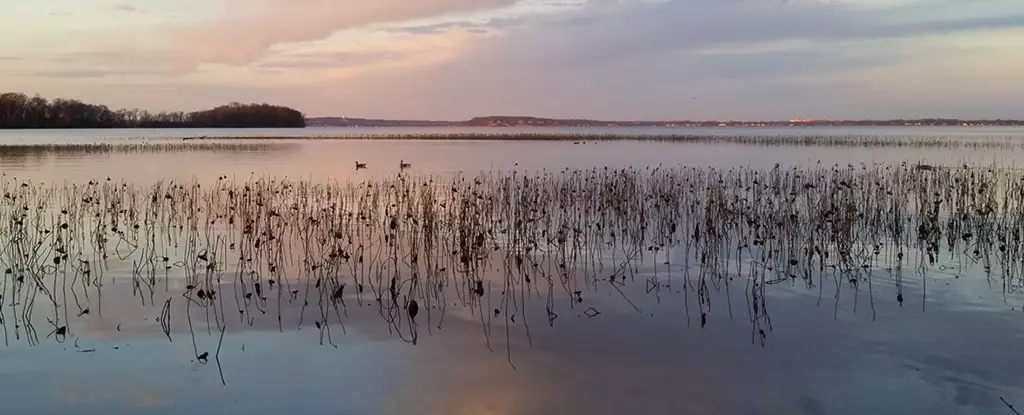Lake Mendota, located in Wisconsin, is more than just a picturesque body of water; it serves as a fascinating laboratory for studying the intricacies of microbial life and their evolutionary patterns. This article delves into a groundbreaking study that unveils the dynamic relationship between the lake’s bacteria and the shifting environmental conditions across the seasons. Through an analytical lens, we will explore how these changes affect bacterial populations and the broader implications for our understanding of microbial ecology.
A remarkable study spearheaded by researchers from the University of Texas at Austin has scrutinized 471 microbe samples from Lake Mendota over an impressive span of 20 years. This extensive research aims to unravel the genetic variations among the lake’s microbial residents. By examining thousands of bacterial genomes, the team unearthed the profound influence of seasonal transformations on microbial life. The bacteria, which possess remarkably short lifespans, can evolve through thousands of generations within the timeframe of a single calendar year. This rapid evolution highlights the adaptability and resilience of microbial communities in response to fluctuating environmental conditions.
The study’s most intriguing findings indicate that a staggering 80 percent of the bacteria analyzed reverted to a near-original genetic state as seasonal cycles repeated annually. This cyclical evolutionary phenomenon is akin to a film being played forward and then reversed, restoring the initial conditions. Researchers liken this genetic evolution across seasons to playing a video of life in fast-forward; the implications are revolutionary in how we perceive microbial dynamics.
As temperatures rise or fall, certain bacterial strains thrive while others struggle, leading to significant fluctuations in community dynamics. Notably, around 20 percent of the bacterial species exhibited sustained genetic changes across several decades. A pivotal year observed in the data was 2012, marked by an intense drought and elevated temperatures. During this period, specific genetic adaptations concerning nitrogen metabolism became apparent, likely resulting from diminished nitrogen-producing algal blooms due to low water influx into the lake.
Such findings underscore the intricate dance of competition and cooperation among bacterial species as they jockey for dominance under changing environmental conditions. The ability for specific strains to emerge and then recede in response to seasonal shifts emphasizes the non-linearity of ecological interactions within microbial communities.
To conduct this research, scientists employed cutting-edge metagenomic techniques that utilize supercomputing capabilities, revolutionizing how microbial genomes are analyzed. They effectively reconstructed genomic sequences from fragmented DNA represented in microbial samples. Each strain’s genetic material is akin to a collection of books, where researchers must painstakingly identify and reorder fragmented sentences to form coherent narratives.
This approach does not merely catalog the existing bacterial strains; it chronicles their evolutionary history, providing vital clues to understanding ecological interactions within Lake Mendota. By piecing together these genomic stories, researchers can glean insights into how bacteria respond to environmental pressures, paving the way for a more refined understanding of microbial ecosystems.
The convergence of ecological and evolutionary processes illustrated by the study challenges long-held notions that these two domains operate independently. Instead, they are intertwined, shaping one another in significant, ongoing dialogues as seasons shift and climate changes. Understanding which bacterial strains dominate during specific conditions is crucial for anticipating the ecological ramifications of climate change, particularly as it relates to carbon absorption in aquatic systems and the impact on food webs.
Marine scientist Brett Baker encapsulates the transformative nature of this research, suggesting that it marks the beginning of a deeper inquiry into microbial ecology and evolution, especially in light of a warming planet. The implications extend beyond Lake Mendota; they resonate across various aquatic ecosystems grappling with similar challenges posed by environmental changes.
The seasonal story of Lake Mendota offers profound insights into microbial life and the complexities of ecological interactions. As the climate continues to shift, understanding these relationships will be paramount in addressing the challenges posed to aquatic ecosystems worldwide.

Leave a Reply